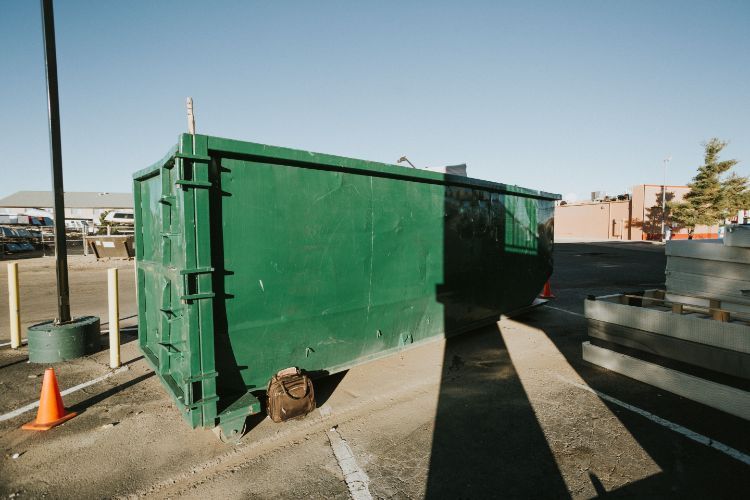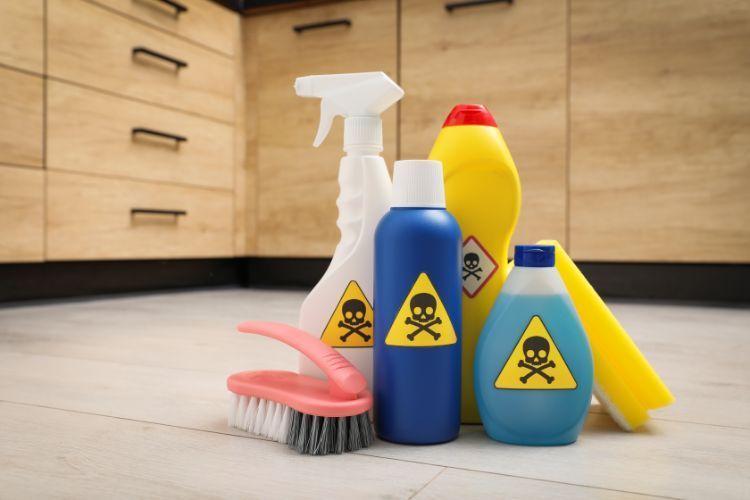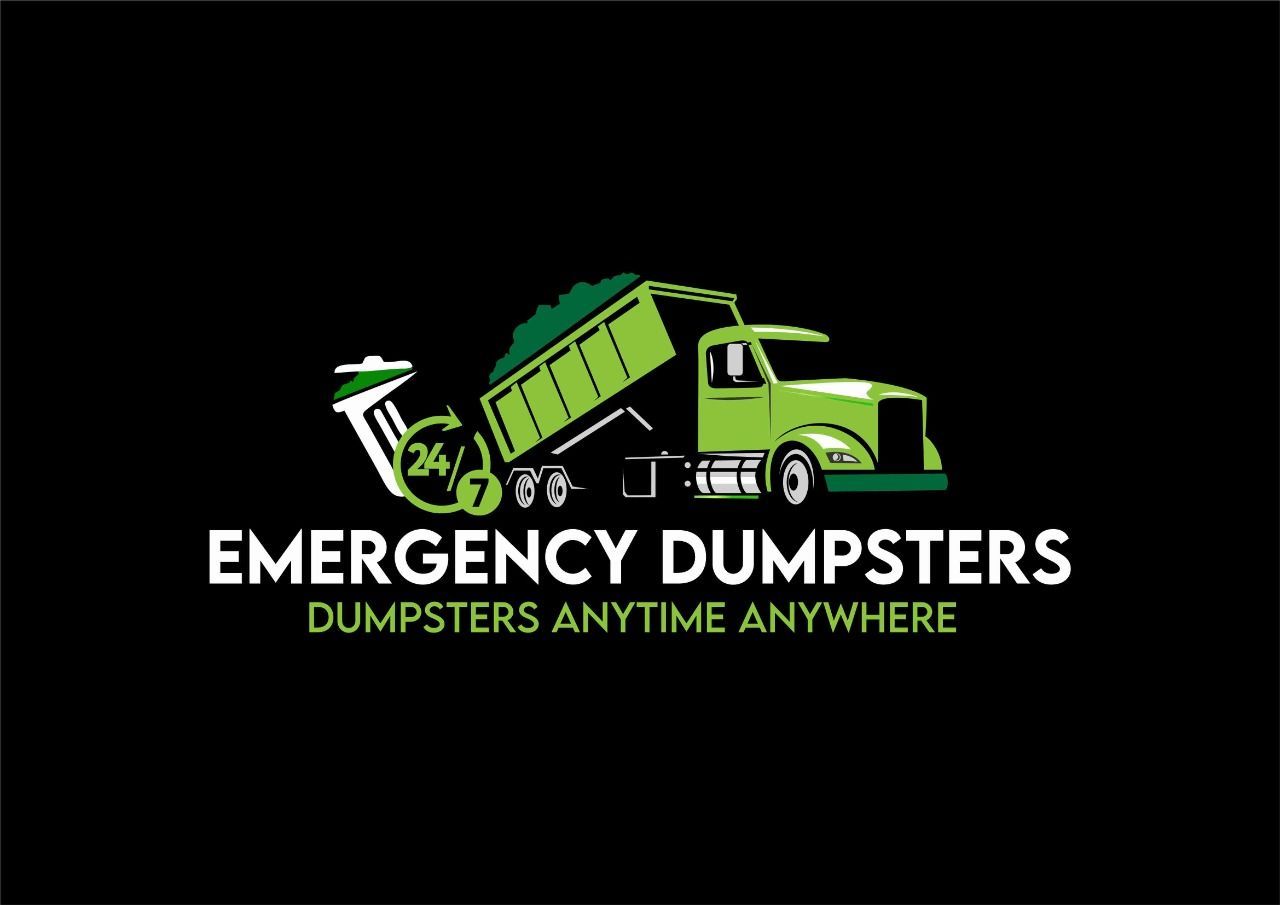What Not to Put in a Dumpster
Michael Mintz
A roll-off dumpster can be a game-changer when you’re knee-deep in a home renovation, major cleanout, or construction project. It’s convenient, keeps your site tidy, and ensures that waste is managed efficiently. However, not everything is dumpster-friendly. Knowing what items are prohibited can save you from fines, environmental harm, and unnecessary hassles.
In this guide, we’ll explore what you should never toss into a dumpster and offer some tips for proper disposal. Let’s get started!
Understanding Roll-Off Dumpster Rentals
A roll-off dumpster is a large, open-top container delivered to your location by a truck. It’s perfect for managing large amounts of waste from residential, commercial, or construction projects. Roll-off dumpster rental services, like those from 24/7 Emergency Dumpsters, provide an easy and efficient solution for waste management. The availability of same-day and 24-hour dumpster rental services means you can get a dumpster exactly when needed, adding to the convenience.
Hazardous Materials: A Definite No-No

Hazardous materials pose severe risks to health and the environment, and tossing them into a dumpster is a big mistake. Items like chemicals, batteries, flammable liquids, and certain cleaning products can cause contamination and hazardous situations. Instead, check with local waste management authorities to dispose of these items properly. Many communities have special drop-off days or facilities specifically for hazardous waste.
Key Points:
- Prohibited Items: Chemicals, batteries, flammable liquids.
- Risks: Environmental contamination, health hazards.
- Proper Disposal: Local hazardous waste facilities or collection events.
Electronics and Appliances
Electronics (e-waste) and large appliances contain harmful substances that can leach into the environment, so they should never end up in a roll-off dumpster. Items like TVs, computers, refrigerators, and air conditioners are often subject to specific disposal regulations. To get rid of these responsibly, look for local recycling programs or take-back programs offered by electronic retailers. Some dumpster rental services can also guide proper disposal methods.
Key Points:
- Prohibited Items: TVs, computers, refrigerators, air conditioners.
- Risks: Environmental damage, legal issues.
- Proper Disposal: Local recycling programs, electronic retailer take-back programs.
Tires and Automotive Parts
Tires and automotive parts are common in cleanout projects but are not allowed in dumpsters. Tires, for instance, can trap gases and become buoyant in landfills, causing issues. Automotive parts, especially those containing fluids, can be hazardous. Recycle tires at designated centers and check with local auto shops or recycling facilities for proper disposal of car parts.
Key Points:
- Prohibited Items: Tires, auto parts.
- Risks: Environmental hazards, landfill issues.
- Proper Disposal: Designated recycling centers and auto shops.
Medical Waste and Pharmaceuticals

Medical waste, including needles, bandages, and unused medications, must be handled with extreme care. Dumping these in a dumpster can pose significant health risks and legal issues. Many areas have stringent regulations on medical waste disposal to prevent contamination and harm. To dispose of medical waste safely, utilize designated drop-off points at pharmacies or medical facilities.
Key Points:
- Prohibited Items: Needles, bandages, medications.
- Risks: Health hazards, legal repercussions.
- Proper Disposal: Pharmacy or medical facility drop-off points.
Construction Debris: What’s Not Allowed
While dumpsters are ideal for construction debris, not all materials are permitted. Items like asbestos, certain paints, and solvents require special handling. These materials are hazardous and must be disposed of according to specific regulations. If unsure, consult with your dumpster rental provider or local authorities. Same-day dumpster rental services can assist in managing construction waste effectively and responsibly.
Key Points:
- Prohibited Items: Asbestos, certain paints, and solvents.
- Risks: Health hazards, environmental damage.
- Proper Disposal: Special handling and disposal regulations.
Household Hazardous Waste
Items like cleaning products, pesticides, and aerosols are surprisingly hazardous and should never be thrown into a dumpster. They can cause fires, explosions, or toxic spills. Instead, look for local household hazardous waste collection events or facilities. Your local waste management services or the
roll-off dumpster rental company can provide more information on proper disposal.
Key Points:
- Prohibited Items: Cleaning products, pesticides, aerosols.
- Risks: Fires, explosions, toxic spills.
- Proper Disposal: Household hazardous waste collection events.

Organic Waste: Food and Yard Waste
Despite being biodegradable, Food and yard waste are generally not accepted in roll-off dumpsters. Large amounts of organic waste can create odors and attract pests. Composting is an excellent alternative for food waste, turning it into valuable garden soil. Check if your local waste services offer yard waste collection or designated drop-off points for yard waste.
Key Points:
- Prohibited Items: Food waste, large amounts of yard waste.
- Risks: Odors, pests.
- Proper Disposal: Composting, yard waste collection services.
Local Regulations and Dumpster Rental Policies
Each locality has regulations regarding what can and cannot be placed in dumpsters. Understanding these rules is crucial to avoid fines and ensure safe disposal. Before renting a dumpster, ask the rental company about their policies and local guidelines. 24/7 Emergency Dumpsters, for example, provide clear instructions and support to help you comply with local regulations.
Tips for Choosing the Right Dumpster Rental Service
Choosing the exemplary roll-off dumpster rental service can make a significant difference. Look for a company that offers flexibility, such as same-day and 24-hour dumpster rental options. Consider their reputation, customer service, and pricing. Services like 24/7 Emergency Dumpsters are known for their reliability and customer-focused approach, making them an excellent choice for waste management.
Responsible Disposal is Key
Understanding what not to put in a dumpster is crucial for safe and responsible waste management. By following these guidelines, you can avoid legal issues, protect the environment, and ensure a smooth cleanup process. Choose a reputable roll-off dumpster rental service, like 24/7 Emergency Dumpsters, to help you manage your waste effectively. For more information and to schedule a same-day dumpster rental, visit Emergency Dumpsters For Less.
Responsible disposal is about following rules and protecting our community and environment. Make informed choices and partner with reliable services to ensure your projects are efficient and eco-friendly.
Share to:
Phone: 1-866-349-2734
For Residential Dumpsters and Junk Removals all across the U.S. please call 561-372-3176

